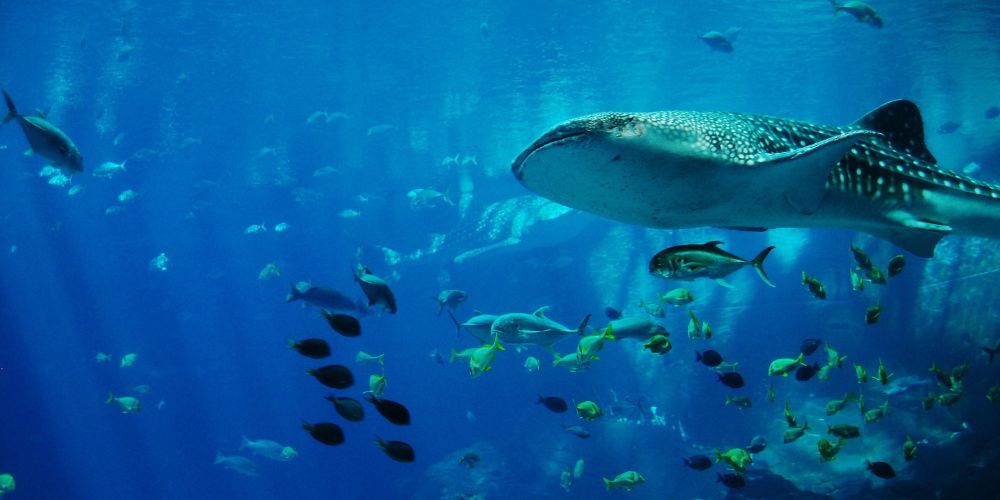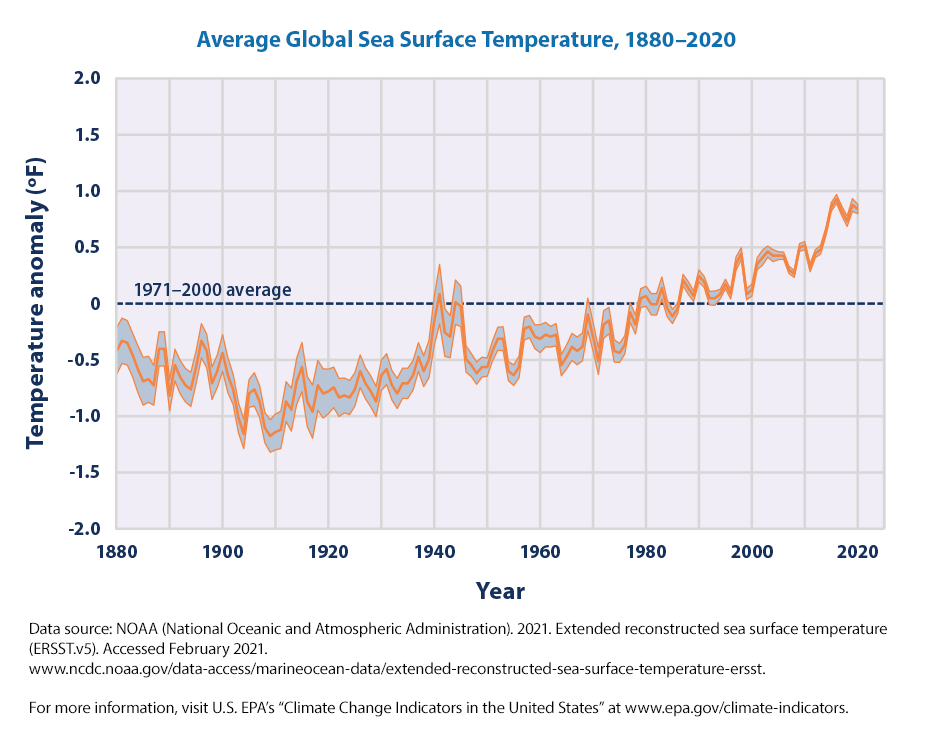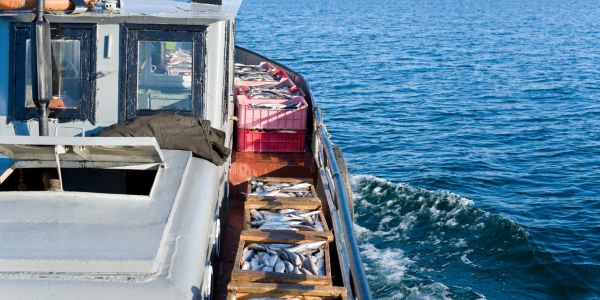
How Climate Change Affects Marine Life
Posted by Ravi Thakur on May 27, 2024
Climate change in marine life will profoundly affect our earth, with enormous effects on sea life. Oceans all around the globe are essential for Earth's weather stabilization—enormous storehouses of extra warmth and carbon dioxide taken in from the air above us.
The dramatic increase in greenhouse gas emissions is primarily a human-induced consequence, and this has caused dramatic changes in the marine environment and far-reaching impacts on oceanic life.
Effects of Climate Change on Marine Ecosystems
Marine life climate changes heavily impact the ocean because it causes significant changes to marine life living under its surface. As our earth gets quickly warmer and denser because of global warming, sea animals come across new and challenging problems—high heat in the water, more types of acids in the oceans, rising sea levels, and stronger storms happening often.
Rising Temperatures

Source: https://www.epa.gov/climate-indicators/climate-change-indicators-sea-surface-temperature
One of the effects of climate change that affects massive levels of marine life is warmer sea temperatures. This warming can disturb the sensitive balance within ocean habitats and affect where and how sea creatures live and act.
“Since the Industrial Revolution, when people started using fossil fuels in electric stations and vehicles, our planet has become warmer by 1 degree Celsius”—National Geographic Study, February 15, 2024.
Ocean Acidification
Increased carbon dioxide in the air can also make oceans acidic. It occurs when seawater absorbs carbon dioxide and mixes it with water to form carbonic acid, decreasing ocean pH. The acid in the water can badly affect sea creatures that need Calcium carbonate to make their shells and bones.
Sea Level Rise

Source: https://www.un.org/en/climatechange/science/climate-issues/ocean-impacts
With the increase in global temperatures, the ice at the northern and southern poles and other glaciers is melting faster, raising sea levels. This situation threatens areas, particularly near coasts, and people who rely on these environments. For instance, when sea levels rise, they can cover where sea turtles lay their eggs.
Extreme Weather Events
Climate change would increasingly lead to extreme weather, from hurricanes and cyclones to heat waves. Such extreme weather conditions harm the ocean environment by ruining habitats, seducing water, and polluting the ocean.
Mitigation and Adaptation Strategies
As we see the increasing effects of climate change on our seas, it is imperative to discover good ways to decrease and adjust to these changes. Mitigation means trying to reduce the severity of climate change by dealing with its main reasons, and adaptation is about getting used to the changes happening now.
Reduce Greenhouse Gas Emissions
We must reduce greenhouse gas emissions to lessen the effect of global warming on aquatic animals. We should also prioritize energy from the sun, winds, and other natural sources of power and use our power sources as efficiently as possible to reduce greenhouse gases.
“Earth's average temperature is increasing almost double the speed of 50 years ago. Scientists say that this quick increase in heat comes from greenhouse gases.” - National Geographic Study, January 18, 2019.
Protect and Restore Coastal Habitats
Safeguarding and repairing habitats near the coast, such as mangroves, saltwater marshes, and seagrass areas, can help soften the effects of climate change on systems under the sea. Such places are significant for breeding, raising young, and finding food for many creatures.
Sustainable Fisheries Management

Implementing sustainable fish resource management could lessen the strain on sea life that climate change has already put on it. This involves establishing limits on how much fish can be caught, lowering the accidental catch of non-target species, and safeguarding places where fish reproduce.
Practical Daily Actions
To complement our understanding of climate change's impact on marine life, it's essential to highlight practical steps individuals can take in their daily lives to contribute positively to preserving aquatic ecosystems. Here are some actionable measures:
Reduce Carbon Footprint: Individuals can reduce their carbon footprint by conserving energy at home, using energy-efficient appliances, and opting for renewable energy sources whenever possible. Also, choosing sustainable transportation options like walking, biking, or public transit can significantly decrease carbon emissions.
Support Sustainable Seafood: Consumers can make informed choices by opting for sustainably sourced seafood. This involves selecting seafood from fisheries and aquaculture practices that minimize environmental impact and promote responsible harvesting methods.
Participate in Beach Clean-ups: Engaging in beach clean-up initiatives organized by local communities or environmental organizations can help remove debris and pollutants from coastal areas, preserving marine habitats and protecting marine species.
Advocate for Protective Policies: Individuals can advocate for policies and regulations aimed at protecting marine habitats, reducing pollution, and mitigating the impacts of climate change on ocean ecosystems. This may involve supporting initiatives that promote marine conservation and sustainable resource management at local, national, and global levels.
By incorporating these practical actions into their daily lives, individuals can play a significant role in safeguarding marine ecosystems and mitigating the adverse effects of climate change on marine life.
Conclusion
It is essential to act in a place where the climate shift is fast changing our sea balance. Oceans Research focuses on learning about and safeguarding ocean life systems.
We can protect the future of our oceans and many species living there if we reduce greenhouse gas emissions, take care of coastal places, and manage fishing in a way that lasts. Let's work together to keep our blue planet safe.
Take Action Now!